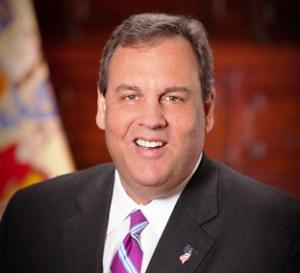Marijuana legalization initiative campaigns aiming at November 2016 are underway in nearly a dozen states. Here's a look at what's likely to pass and what isn't.
Our August sponsor, The ArcView Group, has released its 3rd edition of the State of Legal Marijuana Markets. The first 100 people to use the discount code SDW100 will get a $100 discount, and StoptheDrugWar.org will receive a $75 donation too.
There's a CDC warning on "potential danger" from edibles, a Northern California US attorney who went after dispensaries steps down, Washington state medical marijuana enters a new, uncomfortable era, and more.
Probation officers on drugs, perjuring narcs, and cops helping out drug dealers. Just another week of drug war-related police corruption.
ResponsibleOhio has about a week to come up with 40,000 more signatures, more Americans than ever admit smoking pot, e-sports is about to begin drug testing, a Georgia cop gets indicted for lying about probable cause in the Baby Boo Boo SWAT raid case, and more.
Two Arizona appeals court panels have offered up clashing rulings this week on whether the smell of pot is still probable cause for a search, Michigan initiative fundraising reports tell an interesting story, changes in Washington state's medical marijuana program go into effect today, and more.
Lot's of international news today, plus Minnesota gets a second dispensary, Vermont seeks to prohibit more new synthetics, New Hampshire is worried about heroin, and more.
Any adult will be able to buy pot at Oregon dispensaries beginning October 1, some British police are moving toward de facto decriminalization, reputedly corrupt Philly cops beat a rap and are now suing city officials, and more.
Chris Christie is beating up on marijuana again, Ohio officials continue to play hardball with ResponsibleOhio, DEA Administrator Chuck Rosenberg takes a tiny step forward, Colombian peasants are grumbling at a rumored renewal of aerial crop eradication, and more.
Marijuana is going to be part of the political conversation between now and Election Day 2016. Support for legalization is now consistently polling above 50% nationwide, four states and DC have already voted to legalize it, and activists at least ten states are doing their best to make it an issue this time around.
In those states, they're working to take marijuana legalization directly to the voters in the form of initiatives. Not all of those efforts will actually make the ballot -- mass signature-gathering campaigns require not only enthusiasm but cold, hard cash to succeed -- and not all of those that qualify will necessarily win, but in a handful of states, including the nation's most populous, the prospects for passing legalization next year look quite good.
Presidential contenders are already finding the question of marijuana legalization unavoidable. They're mostly finding the topic uncomfortable, with none -- not even Rand Paul -- embracing full-on legalization, most staking out middling positions, and some Republicans looking for traction by fervently opposing it. Just this week, Chris Christie vowed to undo legalization where it already exists if he is elected president.
It's worth noting that it is the initiative process that is enabling the process of ending marijuana prohibition. Only half the states have it -- mostly west of the Mississippi -- but it is the use of citizen initiatives that led the way, first for medical marijuana and now with outright legalization.
In the face of overwhelming support for medical marijuana, state legislators proved remarkably recalcitrant. It took five years after California voters made it the first medical marijuana state for Hawaii to become the first state to pass it through the legislature. Even now, with nearly half the states having approved some form of medical marijuana, getting such bills through legislatures is excruciatingly difficult, and results in overly restrictive and ineffective state programs.
It's been the same with legalization. Voters approved legalization via initiatives in Colorado and Washington in 2012 and Alaska, Oregon, and the District of Columbia last year. But even in states with majorities or pluralities in favor of legalization, legalization bills haven't gotten passed.
Efforts are afoot at a number of statehouses, and one of them will eventually be the first to legislate legalization, maybe even next year -- it's not outside the realm of possibility. But for now, if legalization is going to continue to expand, it's going to come thanks to the initiative states. In fact, marijuana policy reform is an issue on which elected officials have been so tin-eared and unresponsive to the will of the voters that their failure is an advertisement for the utility of direct democracy.
By the time the polls close on Election Day 2016, we could see the number of legalization states double and the number of Americans living free of pot prohibition quadruple to more than 60 million -- or more. Attitudes on marijuana are shifting fast, and by this time next year, the prospects of even more states actually approving legalization could be even higher.
But right now, we have five states where the prospects of getting on the ballot and winning look good, three states where it looks iffy but could surprise, and two states where it looks like a long-shot next year.
Looking Good for Legalization:
Arizona
A June Rocky Mountain Poll from the Behavioral Research Center has support for legalization at 53%, and Arizonans could find themselves having to decide which competing legalization proposal they like best.
The Marijuana Policy Project-backed Campaign to Regulate Marijuana Like Alcohol would legalize the possession of up to an ounce of buds or five grams of concentrates, as well as allow for home grows of up to six plants per person, with a cap of 12 plants per household. The initiative also envisions a system of regulated marijuana commerce with a tax of 15%. Localities could bar marijuana businesses or even home growing, but only upon a popular vote.
The second initiative, from Arizonans for Mindful Regulation, would legalize the possession of up to an ounce of buds or concentrates, as well as allow for home grows of up to 12 plants -- and home growers could keep the fruits of their harvests. The initiative envisions a system of regulated marijuana commerce with a 10% tax on retail sales. It would allow localities to regulate -- but not ban -- marijuana businesses.
Both campaigns are in the signature-gathering process. They will need 150,000 valid voter signatures to qualify for the 2016 ballot and they have until next July to get them.

Will the Buckeye State do it this year or next?
A May PPIC poll had support for legalization at 54%, and Californians have a variety of initiatives to choose from. At least six legalization initiatives have already been cleared for signature-gathering by state officials, but everybody is still waiting for the other shoe to drop.
That would be the much anticipated initiative from the Coalition for Cannabis Policy Reform, which represents many of the major players in the state, as well as deep-pocketed outside players from all the major drug reform groups. The coalition's initiative was delayed while it waited for the release of a report from Blue Ribbon Commission on Marijuana Policy, led by pro-legalization Lt. Gov. Gavin Newsom (D). That report came out last week, and the coalition says it expects to have its initiative ready within a few weeks.
The delays in getting the initiative out and the signature-gathering campaign underway are going to put pressure on the campaign. To qualify for the ballot, initiatives must come up with some 366,000 valid voter signatures, and that takes time, as well as money. Most of the other initiatives don't have the money to make a serious run at signatures, but the coalition does. All of the California initiatives have until at least the third week of April to gather the needed signatures -- after that they can still gather signatures, but risk getting pushed to the 2018 ballot.
Maine
The most recent polling, a Public Policy Polling survey from 2013, had only a plurality (48% to 39%) favoring legalization, but that's nearly two years old, and if Maine is following national trends, support should only have increased since then. Maine is winnable.
This is another state where a Marijuana Policy Project-backed initiative has competition from local activists. The MPP-affiliated Campaign to Regulate Marijuana Like Alcohol would legalize possession of up to an ounce of buds and allow for six-plant home grows. It would also create a system of regulated marijuana commerce with a 10% tax above and beyond the state sales tax, and it would allow for marijuana social clubs as well as retail stores.
The competing initiative, from Legalize Maine, is a bit looser on possession and home grows, allowing up to 2.5 ounces and six mature and 12 immature plants. Unlike the MPP initiative, which would have the Alcohol Bureau regulate marijuana, this one would leave it to the Department of Agriculture. It would also allow for marijuana social clubs as well as pot shops and would impose a 10% flat sales tax.
Initiatives need 61,126 valid voter signatures to qualify for the ballot. The campaigns have until next spring to get them in.
Massachusetts
A Suffolk/Boston Herald poll from February has support for legalization at 53% in the Bay State, where activists have since the turn of the century been laying the groundwork for legalization with a series of successful non-binding policy questions demonstrating public support, not to mention voting to approve decriminalization in 2008 and medical marijuana in 2012.
Like Arizona and Maine, Massachusetts is another state where a Marijuana Policy Project-backed initiative is being contested by local activists. The MPP-affiliated Campaign to Regulate Marijuana Like Alcohol is still in the initiative-drafting process and details of its initiative remain unknown.
Meanwhile, local activists organized as Bay State Repeal have come up with a very liberal initiative that would legalize possession and cultivation -- without limits -- allow for marijuana farmers' markets and social clubs. This initiative would also create a system of licensed, regulated, and taxed marijuana commerce.
Neither Massachusetts initiative has been approved for signature-gathering yet. The state has a two-phase signature-gathering process, with a first phase for nine weeks between September and December. Then, if sufficient signatures are gathered, the legislature must act on the measure before next May. If it fails to approve the measure, a second, eight-week signature-gathering process commences. Initiatives will need 64,750 valid voter signatures for the first phase, and an additional 10,000 signatures for the second phase.
Nevada
A Moore Information poll from 2013 had support for legalization at 54%, and legalization supporters will most definitely have a chance to put those numbers to the test next year because the Marijuana Policy Project-backed Regulate Marijuana Like Alcohol initiative has already qualified for the ballot. It would legalize the possession of up to an ounce of buds and an eighth-ounce of concentrates, and it would allow for the home growing of six pot plants per adult, with a household limit of 12. Home growers could keep the fruits of their harvest. The initiative would also create a legal marijuana commerce system with a 15% excise tax.
There's a Decent Chance:
Michigan
An April Michigan Poll had support for legalization at 51%, which doesn't leave much margin for error. Nonetheless, at least two groups are embarked on legalization initiative campaigns. (A third appears to have gone dormant.)
The more grassroots Comprehensive Cannabis Law Reform Initiative Committee would legalize the possession of up to 2 ½ ounces by adults and allow home grows of 12 mature plants and an unlimited number of immature ones. Home growers could possess the fruits of all their harvest. The non-commercial transfer of up to 2 ½ ounces would also be legal. A system of regulated marijuana commerce is included and would feature a 10% tax.
The competing Michigan Cannabis Coalition initiative appears to have no personal possession limits, but would only allow for home grows of two plants. It provides an option for localities to ban home grows, or to raise the limit to four plants. It envisions a system of regulated marijuana commerce, with taxes to be set by the legislature.
Michigan only rates the "decent chance" category because of its razor-thin support for legalization and because of its history of marijuana legalization initiatives failing to qualify for the ballot. Initiatives will need more than 250,000 voter signatures to qualify, and they have until next June 1 to do so. Both campaigns have just gotten underway with signature-gathering.
Missouri
A Greenberg Quinlan Rosner Research poll from February showed only 45% in favor of marijuana legalization, but Missouri activists organized as Show-Me Cannabis have been waging a serious, hard fought campaign to educate Missourians on the issue, and it could pay off next year.
Their initiative would legalize up to 12 ounces of buds, one ounce of concentrates, a pound of edibles, and 20 ounces of cannabis liquids, as well as allow for home growing of up to six plants. It would also create a medical marijuana program and a legal, regulated marijuana commerce.
Since it is a constitutional amendment, the initiative will need at least 157,788 valid voter signatures to qualify for the ballot. Organizers will have until next May to get them.
Ohio
Ohio is a special case. By the time you read these words, the ResponsibleOhio initiative either will or will not have qualified for the ballot. [Editor's Note: As of August 3, we're still waiting to see.] If it qualifies, the state could well be the next one to legalize marijuana, since it would go to a vote this November. An April Quinnipiac University poll had support for legalization at 52%.
If it doesn't qualify, others are lined up to take another shot. Responsible Ohioans for Cannabis have a constitutional amendment initiative with no specified possession limits for people 18 and over. It also allows home grows of 24 plants per person, with a limit of 96 plants per household.
Another effort, Legalize Marijuana and Hemp in Ohio, is mainly a medical marijuana initiative, but does allow for the possession of up to an ounce by adults.
Constitutional amendments need 385,000 valid voter signatures to qualify for the ballot; initiated statutes only need 115,000. Like Michigan, however, Ohio is a state with a history of initiatives failing to make the ballot.
Not Likely Next Year:
In the states below, activists are undertaking efforts to get on the ballot next year, but the odds are against them, either because of poor (or no) polling, or lack of funds and organization, or both.
Mississippi
The Mississippi Alliance for Cannabis is sponsoring Proposition 48, a constitutional amendment initiative which "would legalize the use, cultivation and sale of cannabis and industrial hemp. Cannabis related crimes would be punished in a manner similar to, or to a lesser degree, than alcohol related crimes. Cannabis sales would be taxed 7%. Cannabis sold for medical purposes and industrial hemp would be exempt from taxation. The Governor would be required to pardon persons convicted of nonviolent cannabis crimes against the State of Mississippi."
There is no recent polling on attitudes toward legalization in the state, but it is one of the most conservative in the country. To get on the ballot, supporters need to gather 107,216 valid voter signatures by December 17, one year after they started seeking them.
Montana
Ballot Issue 7, which would legalize the possession of small amounts of marijuana by adults, but not create legal marijuana commerce, is the brainchild of a Glendive man who says he plans to bicycle across the state to gather support and signatures.
Prospects for 2016:
Five states are well-positioned to legalize marijuana via initiatives next year, another three could possibly do it, and that would be further evidence that the apparent ongoing sea change in marijuana policy is no aberration. Five, six, or seven would be a good year for marijuana, eight or more would be evidence of a seismic shift. It's going to be interesting.
back to top
Our August sponsor, The ArcView Group, has released its 3rd edition of the State of Legal Marijuana Markets. The first 100 people to use the discount code SDW100 will get a $100 discount, and StoptheDrugWar.org will receive a $75 donation too.
In the report, ArcView found that the legal marijuana market grew 74% from $1.5 billion in 2013 to $2.7 billion in 2014. That's incredible growth driven almost entirely by the passing of new state-level marijuana laws.
This is the definitive market report covering the economic side of this remarkable moment in history.

So much happened in 2014 that the report is has over 340 pages of beautiful charts, graphs and other insightful information that The ArcView Group made very easy and fun to read and digest.
Some things you'll find in this report:
- The inside scoop on the unique market dynamics playing out in each of the state markets (plus Washington, DC).
- Predictions on the next states to pass new cannabis laws.
- Review of the top 13 trends driving the cannabis industry today and in the near future.
- Retail and wholesale sales estimates nationally and in each state for 2014, projections for 2015 and 2016, and a 5-year forecast.
- Ranking of each state in terms of consumer access, opportunities for new entrants, market growth, sales, and other key market statistics.
- Market trend information on ancillary products and services categories, such as insurance, product testing, software development, information data services, tourism, and more.
- Profiles of 22 leading companies in the cannabis industry, featuring company overview, industry sector SWOT analysis, industry advice, and "The ArcView Bottom Line."
- A detailed timeline of important industry moments, from the founding of NORML in the 70's to the Founder's Fund investing in the industry in 2015.
- Access to an easy to reference matrix of the key regulatory elements that drive business decisions in each state, such as whether licenses are given out by a lottery or merit system, whether there is broad consumer access or limited consumer access, whether out-of-state investment is allowed or not, and many more key elements crucial to the decision to enter any given state market.
This report digs deep below the surface to give you insider analysis on each of the key trends along with high-level analysis of each state's economic and regulatory microclimate and interviews with the top players.
If you plan to make any expensive decisions regarding the legal cannabis industry this year, you deserve to have access to the most actionable and detailed data and analysis by the top insiders in the industry.
For the cost of one or two hours of a top experts time, you get the benefit of hundreds of their hours and original data all distilled down into a primer for making economic history.
Order your copy today to get digital access now and the full 340 page full-color hardcover collector's edition in a few weeks. Remember, if you use the discount code "SDW100" you will receive $100 off and StoptheDrugWar.org will receive a $75 donation.
Sincerely,
David Borden, Executive Director
StoptheDrugWar.org
Washington, DC
http://stopthedrugwar.org
P.S. ArcView's other division, The ArcView Investor Network, hosts members-only "Arc Tank" events in cities around the country. To get more info and to see if you qualify to join the ArcView Investor Network, please inquire here.
back to top
There's a CDC warning on "potential danger" from edibles, a Northern California US attorney who went after dispensaries steps down, Washington state medical marijuana enters a new, uncomfortable era, and more.
NationalLast Friday, the CDC warned of "potential danger" from edibles. The Centers for Disease Control and Prevention (CDC) released a report citing the case of a Wyoming college student who fell to his death after eating edibles in Colorado to warn of the "potential danger" with the products. "Although the decedent in this case was advised against eating multiple servings at one time," the CDC article says, "he reportedly consumed all five of the remaining servings of the THC-infused cookie within 30-60 minutes after the first serving." The CDC noted that the coroner in the case listed "marijuana intoxication" as a contributing factor in the death, which was classified as an accident.
California
On Tuesday, Humboldt County supervisors delayed discussions on repealing the county's ban on new dispensaries. No dispensaries have been allowed to open in the county since December 2011, when supervisors enacted a moratorium on them. Prospective dispensary operators who have been waiting for more than four years will have to wait a little longer. Supervisors said they would discuss the issue at their August 18 meeting.
On Wednesday, US Attorney for Northern California Melinda Haag said she is stepping down. Haag earned the antipathy of medical marijuana advocates for her crackdown on Northern California dispensaries, which she accused of being fronts for illegal dealers. Advocates harshly criticized her for attempting to shut down the Harborside dispensary in Oakland, the nation's largest. It's still open for business as the legal wrangle continues.
Michigan
Last Friday, the state Supreme Court ruled that a medical marijuana card doesn't grant sweeping immunity, but... In a pair of cases regarding medical marijuana caregivers, the state's high court has ruled that the medical marijuana law does not grant sweeping immunity to cardholders, but sent the cases back to lower courts to determine whether the defendants are entitled to immunity. The court seems to be getting tired of medical marijuana. It has addressed the issue nine times in the past seven years. "The many inconsistencies in the law have caused confusion for medical marijuana caregivers and patients, law enforcement, attorneys, and judges, and have consumed valuable public and private resources to interpret and apply it," wrote Justice Bryan Zahra.
Minnesota
Last Thursday, the second dispensary in the state opened for business. The state's first medical marijuana dispensary outside of the Twin Cities, Minnesota Medical Solutions in Rochester opened its doors. A Minneapolis-area dispensary opened earlier this year.
Ohio
On Wednesday, the attorney general rejected the wording of a medical marijuana petition. Attorney General Mike DeWine announced today that he had rejected a petition for the Ohio Medical Cannabis Amendment, saying he had found several defects in the language. Now, the group will have to address those defects, gather another 1,000 initial signatures, and try again.
Washington
Last Friday, changes to the state's medical marijuana program went into effect. Recently passed legislation designed to bring the program in line with the state's legalization system are now active. The Liquor Control Board is now the Liquor and Cannabis Control Board, PTSD and traumatic brain injury are now considered qualifying conditions, a voluntary patient database (which patients must join if they want the tax breaks for medical marijuana) is now in effect, the number of plants in a household is limited to 15 no matter how many patients live there, and doctors who write more than one medical marijuana authorization a day must report their totals to the Department of Health.
Also last Friday, a member of the Kettle Falls Five got 16 months in federal prison. They grew medical marijuana in a state where it is legal -- heck, even recreational is legal in Washington -- but were prosecuted by zealous federal prosecutors operating out of Spokane. Now, after pleading guilty and testifying for the federal government against fellow members of the five, Jason Lee Zucker has been rewarded with 16 months in federal prison. Assistant US Attorney Caitlin Baunsgard said last Friday Zucker's testimony was "integral" to obtaining convictions against his co-defendants and urged the lighter sentence. He could have been sent to federal prison for five years. Three of the other Kettle Falls Five face sentencing in October after being found guilty and are looking at up to 20 years. The fifth member, family patriarch Larry Harvey, saw charges against him dropped after he was diagnosed with terminal cancer.
On Tuesday, King County said it will force unlicensed dispensaries to close. King County Prosecutor Dan Satterberg said that dispensaries operating illegally in unincorporated areas of the county will have to shut down soon. He said that he would be serving up lawsuits against 15 collectives in coming days. "Their days as marijuana sellers where they never had a license, and they never paid taxes, those days are over," he said. He added that the businesses had a couple of months to shut down before he goes after them in court.
International
Israel to Make Medical Marijuana Available By Prescription, Will Be Sold in Pharmacies. Deputy Health Minister Yakov Litzman said Monday that medical marijuana will be available in pharmacies and more doctors will be allowed to prescribe it. "There are already pharmacies that dispense all sorts of other drugs, such as morphine. There is order with that, and there will be order with this," Litzman said. "There will be registration, and we'll supervise it, but it will be according to a standard, like a drug. Right now, we're in a case at the High Court of Justice because of the growers, and we'll issue a tender for the growers. I hope we get approval from the High Court of Justice. We'll fight aggressively to allow this to get out," Litzman emphasized. "The growers will also be stronger. As soon as there is a tender, it shifts to selling a drug by prescription, and I'm sure it will be accepted. We have a lot more work and much more to do, but this is my headline."
[For extensive information about the medical marijuana debate, presented in a neutral format, visit MedicalMarijuana.ProCon.org.]
back to top
Probation officers on drugs, perjuring narcs, and cops helping out drug dealers. Just another week of drug war-related police corruption. Let's get to it:
In
Waynesville, North Carolina,
a Buncombe County probation officer was arrested last Thursday on multiple charges for allegedly trying to buy 60
oxycodone tablets from an undercover officer posing as a drug seller. Jill
Suddreth allegedly tried to flush the pills down the toilet when taken to the detention center. She is charged with solicitation to commit a felony, conspiracy, possession and more. She out on bond right now.
In San Luis Obispo, California, a former San Luis Obispo County DA's investigator was arrested Monday on charges he lied in a search warrant affidavit to a judge while a member of the Sheriff's Narcotics Task Force. AJ Santana filed an affidavit for a search warrant in August 2014 and successfully had it sealed "to protect an ongoing investigation," but officials discovered he had lied. Then they dropped the charges against the man Santana targeted. He's looking at up to 18 months in state prison.
In Houston, Texas, a former Houston Police officer was convicted Tuesday of helping her drug-dealing boyfriend transport cocaine between Huntsville and Houston. Jasmine Bonner, 27, went down after a confidential informant set up a sting in which Bonner and her boyfriend took possession of a kilo of cocaine. They were arrested as they drove away with the dope. She copped to one count of aiding and abetting possession with the intent to distribute cocaine, and is looking at up to 40 years in federal prison, with a mandatory minimum of five years.
In Miami, a Miami-Dade County police detective was sentenced last Wednesday to three years in prison for giving information and tips to a marijuana trafficking organization. Roderick Silva admitted tipping off the Santisteban family pot crew to a police list of suspected grow houses and accepted $1500 for his trouble. He copped to one count of conspiracy to distribute marijuana.
back to top
ResponsibleOhio has about a week to come up with 40,000 more signatures, more Americans than ever admit smoking pot, e-sports is about to begin drug testing, a Georgia cop gets indicted for lying about probable cause in the Baby Boo Boo SWAT raid case, and more.

The question right now isn't should it or shouldn't it make the ballot, but will it or won't it?
Ohio Legalization Initiative Still Fighting to Get on Ballot. The ResponsibleOhio legalization initiative campaign, which state officials say came up 35,000 signatures short in its effort to get its measure on the November ballot, says it is sure it had enough valid signatures and will go to the state Supreme Court to contest the results. "There are over 21,000 voters who were incorrectly identified as invalid. We want to make sure they have their signatures count. We also see that there are 40,000 signatures that weren't reviewed," spokesman Ian James said. The group is also gathering more signatures -- it has a 10-day window to try to make up any shortfall.
Gallup Poll Finds Largest Number Yet of Americans Admitting to Having Smoked Weed. Some 44% of Americans admit to having smoked marijuana, the largest number ever record by the pollsters. When Gallup first asked the question back in 1969, only 4% admitted to having tried it. By 1985, the figure was at 33%. Gallup wasn't sure if the rising numbers reflected more people actually using marijuana or more people being comfortable admitting to it. "The changes over time may reflect either an increase in the percentage who have tried the drug, or an increased willingness to admit to having done so in the past," Gallup explained.
Medical Marijuana
Senate Appropriations Committee Approves DC Pot Shops, Marijuana Banking Bill. The committee today approved a bill today allowing the nation's capital to establish regulated marijuana stores and let banks provide financial services to state-legalized marijuana dispensaries. The votes came on the financial services spending bill, which includes language removing a federal ban on regulated marijuana commerce in the District, which legalized possession and cultivation last year. The committee also approved an amendment allowing banks to provide services to marijuana businesses where they are legal.
Marijuana Policy Project Report Criticizes New Hampshire Medical Marijuana Program. In a report marking the two year anniversary of the signing into law of the state's medical marijuana program, the activist group is harshly critical of the state's failures in implementing the law. The report title pretty much says it all: Confusion, Delays, and Continued Arrests: A Two-Year Retrospective on New Hampshire's "Therapeutic Use of Cannabis" Law. Click either link to read the report.
Asset Forfeiture
Arizona ACLU Files Lawsuit Claiming State's Asset Forfeiture Laws Are Unconstitutional. The ACLU of Arizona today filed a federal lawsuit in Phoenix arguing that the laws "have created a lucrative system in which police and prosecutors are heavily incentivized to seize and forfeit property." The group says the law allows "law enforcement [agencies to] supplement their budgets without any legislative oversight." The ACLU is representing a Sun Tan Valley woman whose pick-up truck was seized after her son borrowed it and was arrested for allegedly stealing a hood ornament and putting it on the truck.
Drug Testing
Drug Testing Comes to E-Sports. The Electronic Sports League, the largest online gaming organization, has announced that it will adopt policies to keep drugs out of virtual sports. The move comes in the wake of ongoing controversy about the use of Adderall by e-sports players. A high-ranked e-sports player, Kory Friesen, ignited the commotion by not only admitting to use of the drug, but claiming it was prevalent. "We were all on Adderall," he said in a widely-copied interview.
Law Enforcement
Georgia Cop Indicted Over Baby Boo-Boo SWAT Raid. A Habersham County sheriff's deputy has been indicted by a federal grand jury in connection with the May 2014 raid that left a toddler severely injured by a flash-bang grenade. Nikki Autry, a special agent of the Mountain Judicial Circuit Criminal Investigation and Suppression Team (NCIS), has been indicted for lying in a search warrant affidavit and providing the same false information to obtain an arrest warrant in the case. Autry is accused of claiming that one of his informants made a meth buy at the address when the alleged meth purchase was made by someone else and lying about whether it was a "true and honorable informant." Nor had Autry confirmed there was heavy traffic in and out of the house, as he claimed. His alleged lies were the basis for a judge signing off on the "no knock" warrant that resulted in the bad raid.
International
Marijuana Cultivation on the Upsurge in Sweden. Swedish media are reporting an increasing number of marijuana cultivation busts. There were 904 pot farms reported to police last year, up fourfold from 2011, and police said they were on track for similar numbers this year.
back to top
Two Arizona appeals court panels have offered up clashing rulings this week on whether the smell of pot is still probable cause for a search, Michigan initiative fundraising reports tell an interesting story, changes in Washington state's medical marijuana program go into effect today, and more.

Peyote buttons, sacrament of the Native American Church. (wikipedia.org)
Arizona Appeals Court Upholds Search Based on Marijuana Odor. Whether the odor of marijuana is probable cause for a search or a search warrant now looks like an issue heading to the state Supreme Court. Just days after one appeals court panel ruled that the state's medical marijuana law means it is not grounds for a search warrant, a second panel has ruled that it is. In Thursday's case, the appeals court upheld the actions of police officers who searched a vehicle after they smelled burnt marijuana. The panel held that the medical marijuana law didn't make marijuana legal, but only provided immunity from prosecution to those who had medical marijuana ID cards. "The fact that a registered patient under the AMMA with a valid registry identification card can affirmatively claim immunity from arrest, prosecution or penalty for possession of use of marijuana .... does not eliminate the significance of the smell of marijuana as an indicator of criminal activity in this case," Judge Samuel Thumma wrote.
Grassroots Effort Leads in Fundraising Among Michigan Legalization Initiatives. Campaign finance reports reveal that the Michigan Cannabis Coalition (MCC), backed by wealthy Oakland County interests, has only $1,000 in the bank, while the grassroots MILegalize has raised $60,000, with more than $100,000 in matching funds pledged. MCC got a $21,000 donation from an Oakland county Republican political operative, but the same day, it sent a $20,000 check to signature-gathering firm. A third group, the Michigan Responsibility Council, which wants to create a cultivation monopoly like the one championed by ResponsibleOhio, appears to have gone quiet. Its website is defunct, it hasn't displayed any initiative language, and it will not reveal the identities of its leaders.
New Hampshire Poll Has Strong Support for Legalization. A new WMUR Granite State poll has support for legalization at 60% and support for decriminalization even higher at 72%. Support has climbed six points for legalization and nine points for decriminalization since the last WMUR Granite State poll in May. The state legislature has considered legalization, but has so far refused to pass it. Click on the link for more poll results and methodology.
Medical Marijuana
CDC Warns of "Potential Danger" From Edibles. The Centers for Disease Control and Prevention (CDC) today released a report citing the case of a Wyoming college student who fell to his death after eating edibles in Colorado to warn of the "potential danger" with the products. "Although the decedent in this case was advised against eating multiple servings at one time," the CDC article says, "he reportedly consumed all five of the remaining servings of the THC-infused cookie within 30-60 minutes after the first serving." The CDC noted that the coroner in the case listed "marijuana intoxication" as a contributing factor in the death, which was classified as an accident.
Washington State Medical Marijuana Program Changes Now In Effect. Recently passed legislation designed to bring the program in line with the state's legalization system went into effect today. The Liquor Control Board is now the Liquor and Cannabis Control Board, PTSD and traumatic brain injury are now considered qualifying conditions, a voluntary patient database (which patients must join if they want the tax breaks for medical marijuana) is now in effect, the number of plants in a household is limited to 15 no matter how many patients live there, and doctors who write more than one medical marijuana authorization a day must report their totals to the Department of Health.
Peyote
Salt Lake City Religious Freedom Rally Calls for End to Utah Ban on Sacramental Use. Protesters gathered at the state capital in Salt Lake City Thursday to advocate for the right to use peyote as part of their religious observances. The demonstration was organized by the Tahteya Topa (Four Winds) Native American Church of Utah, which is allowed under federal law to use the cactus for religious purposes. The Utah law bans anyone who is not at least one-quarter Indian from using it for religious purposes. "It's supposed to be 25% [Native American heritage], but what they're really doing is trying to kill a religion by saying you have to have a certain blood… Religion is not about race," said the church's David Hamblin.
back to top
Lot's of international news today, plus Minnesota gets a second dispensary, Vermont seeks to prohibit more new synthetics, New Hampshire is worried about heroin, and more.

Iboga, the African herb from which ibogaine is derived (ibogaineconference.org)
Kettle Falls Five Member Gets 16 Months in Federal Prison. They grew medical marijuana in a state where it is legal -- heck, even recreational is legal in Washington -- but were prosecuted by zealous federal prosecutors operating out of Spokane. Now, after pleading guilty and testifying for the federal government against fellow members of the five, Jason Lee Zucker has been rewarded with 16 months in federal prison. Assistant US Attorney Caitlin Baunsgard said last Friday Zucker's testimony was "integral" to obtaining convictions against his co-defendants and urged the lighter sentence. He could have been sent to federal prison for five years. Three of the other Kettle Falls Five face sentencing in October after being found guilty and are looking at up to 20 years. The fifth member, family patriarch Larry Harvey, saw charges against him dropped after he was diagnosed with terminal cancer.
Second Minnesota Dispensary Opens for Business. The state's first medical marijuana dispensary outside of the Twin Cities, Minnesota Medical Solutions in Rochester, opened last Thursday. A Minneapolis-area dispensary opened earlier this year.
Ibogaine
Global Ibogaine Conference to Be Held in Mexico in March 2016. The conference will take place in the charming hipster town of Tepoztlan, about an hour south of Mexico City, and will feature speakers including Claudio Naranjo, Stanton Peele, and Andrew Tatarsky. Click on the link for all the conference and registration information.
New Synthetic Drugs
Vermont to Add 75 New Synthetic Drugs to Controlled Substances List. State officials are set to outlaw 75 new synthetic drugs after earlier moves against synthetics resulted in new ones being produced. "The people who design and create what people think of designer drugs are very creative chemists," said State Toxicologist Sarah Vose. "And they can change molecules very easily to avoid being regulated," Vose said. "So the updates to this list are an attempt to keep ahead of that trend in designer-drug creation." The new list of regulated compounds includes stimulants, depressants and hallucinogens. Among the soon-to-be-illegal compounds is acetyl-fentanyl, a derivative of a powerful opiate. The Legislative Committee on Administrative Rules will convene a hearing on the regulated drug rule proposal next week.
Drug Policy
Poll Finds Drug Abuse Second Most Pressing Problem in New Hampshire. Concerns about drug abuse were second only to concerns about the economy for New Hampshire residents surveyed in a WMUR Granite State Poll released last Thursday. Some 25% of respondents said the economy was the main concern, while 14% said drug abuse. Pollster Andy Smith said it was the most concern he's heard about drugs in the 15 years he's conducted the survey. But respondents were divided on what to do about it, with 42% saying the government should spend more to address heroin use, 20% saying the government is spending enough, and 38% saying they didn't know enough to respond.
International
Reuters Does In-Depth Report on Meth in West Africa. The press agency has produced a fairly comprehensive look at the rise of meth, meth trafficking, and meth production in the region. Click on the link to read the whole thing.
Israel to Make Medical Marijuana Available By Prescription, Will Be Sold in Pharmacies. Deputy Health Minister Yakov Litzman said Monday that medical marijuana will be available in pharmacies and more doctors will be allowed to prescribe it. "There are already pharmacies that dispense all sorts of other drugs, such as morphine. There is order with that, and there will be order with this," Litzman said. "There will be registration, and we'll supervise it, but it will be according to a standard, like a drug. Right now, we're in a case at the High Court of Justice because of the growers, and we'll issue a tender for the growers. I hope we get approval from the High Court of Justice. We'll fight aggressively to allow this to get out," Litzman emphasized. "The growers will also be stronger. As soon as there is a tender, it shifts to selling a drug by prescription, and I'm sure it will be accepted. We have a lot more work and much more to do, but this is my headline."
More Than One Quarter of Italian Parliamentarians Support Marijuana Legalization Proposal. Some 250 of Italy's 945 members of parliament have endorsed a bill that would legalize marijuana. The proposal would allow anyone 18 or older to grow up to five plants at home or to join a "cannabis social club" with a joint garden of up to 50 people and 250 plants. Marijuana produced by home gardeners or social clubs could not be sold, but marijuana stores would make pot available at retail, with people allowed to possess up to 15 grams at home and to carry up to five grams with them. The proposal has support across Italy's political spectrum, but it remains to be seen if it can pass.
Online Petition Calling for Marijuana Legalization Will Force UK Parliament to Respond. More than 150,000 Britons have signed a government-authorized online petition calling for the total legalization of marijuana. Like the change.gov petition process in the US, policymakers must respond if a certain signature level -- in this case, 100,000 -- is reached. The signatures have come in just five days. The petition now goes to the House of Commons petition committee, which has the power to press for action from the government or the parliament -- or not. But at least the petition committee will have to formally address it.
back to top
Any adult will be able to buy marijuana at Oregon dispensaries beginning October 1, some British police are moving toward de facto decriminalization, dirty Philly cops beat a corruption rap and are now suing city officials, and more.

Oregon Gov. Kate Brown (D) has signed a bill allowing recreational marijuana sales at dispensaries beginning October 1. (or.gov)
Oregon Governor Signs Bill Allowing Recreational Marijuana Sales to Begin October 1. Gov. Kate Brown (D) has signed into law Senate Bill 460, which will allow medical marijuana dispensaries to begin selling marijuana to all adults on October 1. Pot shops other than existing dispensaries won't come on line until next year.
Medical Marijuana
Michigan Supreme Court Says Medical Marijuana Card Doesn't Grant Sweeping Immunity, But… In a pair of cases regarding medical marijuana caregivers, the state's high court has ruled that the medical marijuana law does not grant sweeping immunity to cardholders, but sent the cases back to lower courts to determine whether the defendants are entitled to immunity. The court seems to be getting tired of medical marijuana. It has addressed the issue nine times in the past seven years. "The many inconsistencies in the law have caused confusion for medical marijuana caregivers and patients, law enforcement, attorneys, and judges, and have consumed valuable public and private resources to interpret and apply it," wrote Justice Bryan Zahra.
Law Enforcement
Acquitted Philly Cops Sue City Officials for Defamation. Five members of a notorious Philadelphia Police dope squad who managed to avoid federal corruption convictions and who have won the right to return to work are now suing the district attorney, the mayor, and the police commissioner. They say they were unfairly maligned and fired. After numerous reports of corrupt activities, DA Seth Williams began refusing their cases in 2012 and that "started a gigantic, destructive avalanche of severe and permanent wrongs, damages and injustices" that continues to affect the officers today," their attorney wrote. They had been accused of routinely beating drug suspects, stealing money, and lying on police reports. One member of the squad pleaded guilty and testified against the others, but the jury did not convict.
International
Three More British Police Forces Will Basically Ignore Small Pot Grows. Police in Derbyshire, Dorset, and Surrey are joining police in Durham in quietly turning a blind eye to small-scale marijuana cultivation and use. While the Conservative government continues to have a hard-line stance on marijuana, the cops say they have better things to do. "On the list of priorities cannabis moves a long way down the chain," one police official explained.
back to top
Chris Christie is beating up on marijuana again, Ohio officials continue to play hardball with ResponsibleOhio, DEA Administrator Chuck Rosenberg takes a tiny step forward, Colombian peasants are grumbling at a rumored renewal of aerial crop eradication, and more.

New Jersey Gov. Chris Christie stands firm against marijuana legalization. (nj.gov)
Chris Christie Vows to Roll Back Legalization in the States if Elected. New Jersey governor and Republican presidential contender Chris Christie said Tuesday marijuana users in legal states should enjoy their highs while they have the chance because if he's elected, he will enforce federal prohibition. "If you're getting high in Colorado today, enjoy it," said Christie at a town hall meeting in New Hampshire. "As of January 2017, I will enforce the federal laws. If you want to change the marijuana laws, go ahead and change the national marijuana laws," he added. Christie is currently struggling to break out of the bottom of a crowded field of GOP contenders.
Ohio Secretary of State to Investigate Legalization Petitions for Possible Fraud. Secretary of State Jon Husted said today he had named a special investigator to look into "discrepancies" in petitions from the controversial legalization group ResponsibleOhio. He said the review would look into "significant disparities" between the number of petitions the group claimed to have gathered and the number actually turned in. If the discrepancies constitute fraud, they could lead to criminal charges, he said. ResponsibleOhio, on the other hand, has accused state election officials of losing some 40,000 signatures and wrongfully invalidating others and is threatening to go to the state Supreme Court over the issue. The group had handed in nearly 700,000 signatures and needed only 305,000 valid ones to qualify for the 2015 ballot, but state officials last week said they were about 30,000 short. ResponsibleOhio has until midnight tomorrow to try to make up for the signature shortfall.
Medical Marijuana
Ohio Attorney General Rejects Medical Marijuana Petition Wording. Attorney General Mike DeWine announced today that he had rejected a petition for the Ohio Medical Cannabis Amendment, saying he had found several defects in the language. Now, the group will have to address those defects, gather another 1,000 initial signatures, and try again.
Washington's King County Will Force Unlicensed Dispensaries to Close. King County Prosecutor Dan Satterberg said Tuesday that dispensaries operating illegally in unincorporated areas of the county will have to shut down soon. He said that he would be serving up lawsuits against 15 collectives in coming days. "Their days as marijuana sellers where they never had a license, and they never paid taxes, those days are over," he said. He added that the businesses had a couple of months to shut down before he goes after them in court.
Drug Policy
New DEA Head Concedes Marijuana Might Not Be As Dangerous as Heroin. DEA Administrator Chuck Rosenberg Tuesday conceded during a conference call that heroin is probably more dangerous than marijuana, but that he was no expert. "If you want me to say that marijuana's not dangerous, I'm not going to say that because I think it is," Rosenberg said. "Do I think it's as dangerous as heroin? Probably not. I'm not an expert." Coming from anyone other than a DEA head, the statement would be considered mealy-mouthed, but it actually marks a break with Rosenberg's hardline predecessor, Michele Leonhart, whose refusal to make the distinction helped contribute to her being forced from the position.
International
Irish Officials Say They Have a "Wide Consensus" for Drug Decriminalization. After a "think tank" on drug problems in Dublin today, Minister of State of the National Drugs Strategy Aodhan O'Riordain said there was a "wide consensus within the room for decriminalization," but there were also "some question marks and some discussion points as to how to get wider society on board with the idea. People in the sector may be convinced, but the terminology and the language is going to be important."
Colombia Coca Farmers Threaten Protests Over Reports Government Might Resume Aerial Spraying. Amid rumors that authorities plan to restart efforts to eradicate coca crops by spraying them with glyphosate, farmers in the north are vowing to fight such plans. "The moment they begin the fumigation, the peasant strike will begin," said a spokesman for the Campesino Association of Catatumbo. With US backing and encouragement, the Colombian government sprayed the herbicide on coca crops for years despite peasant protests that it was causing illness and damaging other crops and livestock. Earlier this year, the government halted the practice after the World Health Organization declared glyphosate a carcinogen. Nearly 2,500 police are being sent to the region in anticipation of protests, even though the interior minister denied any plans to begin spraying anew, saying it was only under discussion.
(This article was prepared by StoptheDrugWar.org's lobbying arm, Drug Reform Coordination Network, which also pays the cost of maintaining this web site. DRCNet Foundation takes no positions on candidates for public office, in compliance with section 501(c)(3) of the Internal Revenue Code, and does not pay for reporting that could be interpreted or misinterpreted as doing so.)
back to top









